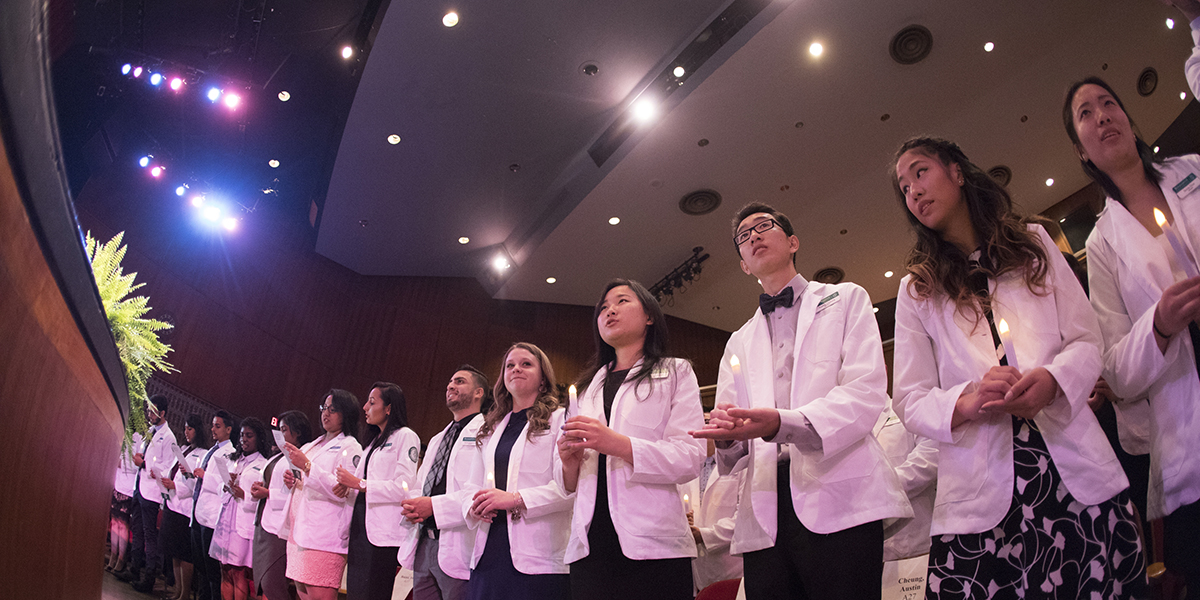Making a match: Graduating pharmacy students apply for residency programs
Match process is competitive — and challenging

Most people are probably familiar with resident physicians — individuals who, after graduating from medical school, are required to receive postgraduate training at hospitals before they obtain an unrestricted license to practice medicine in a chosen specialty.
Most people are probably not aware that pharmacists can also opt for postgraduate training as residents — which is not required — and Match Day is a big day for them.
Match Day — this year held March 19 — pairs applicants with available residency positions after an extensive application and evaluation process.
In the first year possible for Binghamton University School of Pharmacy and Pharmaceutical Sciences students to apply for residencies, six were matched.
Wesley Kufel, clinical assistant professor of pharmacy practice at Binghamton, began working last fall with students interested in applying for residencies, and advised them throughout the application process. Amanda Mogul, Sarah Spinler, and Emily Leppien from the Department of Pharmacy Practice worked with Kufel to develop seminars to help further prepare students for the residency process.
A student applies for a residency to a specific program, and if the application meets the program’s expectations, the student will be invited for an interview, Kufel said.
“The application usually includes GPA, a letter of intent and a CV to highlight the student’s pharmacy practice experiences, student leadership positions and involvement in professional organizations,” he said. “Letters of recommendation from faculty and preceptors they completed a clinical rotation or internship with are required as well.
“The programs each have a scoring system to rank their candidates and they invite the ones with the highest application scores for an interview.”
The interview process is challenging, Kufel said, and generally includes meeting with faculty, current residents and pharmacists. Some programs also ask candidates to do a formal presentation or complete a patient case to evaluate their clinical skills.
“That’s why we prepare them as best we can,” Kufel said. “And after the interviews, the programs combine their application scores and interview scores and submit a ranked list to a third-party system. The students also rank their preferences and submit them, and the third-party system matches them up.”
Applicants who are not matched in the first round have a second chance when yet-unmatched applicants have the opportunity to connect with remaining residency programs, but the match program is extremely competitive, Kufel said.
Given the rigor of the application process, what is the benefit of a residency program?
“It helps to further their education and skills to pursue a career in clinical pharmacy and more specialized areas of pharmacy,” Kufel said. “And it opens the door to potentially more career paths and opportunities.”
“Residencies are becoming more and more popular,” he added. “They’re very intense for a year or two, with long hours, but to get into more of a clinical pharmacy career position, it’s pretty much what you need to do. It lets you build upon your professional development.”
“For some programs, there were upwards of 50 applicants or even more for one spot,” he said. “Those who weren’t matched on March 19 and were trying to match with a remaining program weren’t even getting interviews because of the competitive process.
“We did well our first year with nearly 50% of our students being matched and securing positions in very well-known and reputable programs.”
